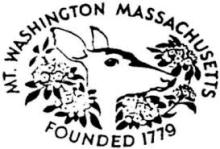One Word Limits Funding Options for Rural Broadband in Massachusetts
Lobbyists from the cable and telecom industry succeeded in using the legislature to firm up their rural Massachusetts monopolies this session. Communities that rely on state funds for local publicly owned broadband infrastructure projects now face restrictions on the reach of their high-speed networks.
A Long Trip Through the Legislature
Governor Charlie Baker’s economic development bill includes a provision designating funding for the Massachusetts Broadband Institute (MBI) and the Executive Office of Housing & Economic Development for broadband deployment. The agencies distribute the funds to various communities where residents and businesses plan to improve their local connectivity. Approximately 20 towns have decided to invest in publicly owned Internet infrastructure, including Alford, Otis, and Mount Washington, to name a few. Others are taking offers from Comcast and Charter, which will build out networks to more premises with state funding.
Many of the rural communities who are going with the publicly owned option want to connect households and establishments within the town proper, but also what they describe as “edge” properties — those beyond town limits but have no other choice for broadband. Edge properties in western Massachusetts typically don’t have access to anything better than expensive and unreliable satellite or dial-up. Often, there are only a few “edge” properties in each community, but neighbors don’t want to leave anyone behind.




